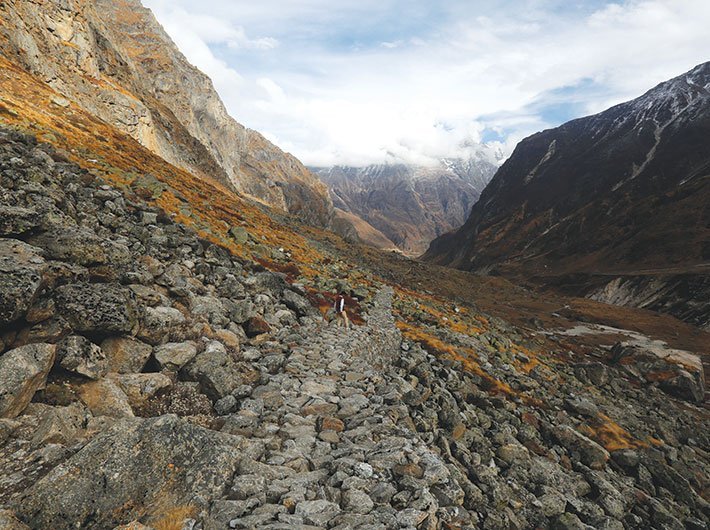Global Climate Risk Index assesses country-wise losses due to extreme weather events
India has been among the countries most affected by climate change, and ranks high on the Climate Risk Index prepared by researchers at NGO Germanwatch.
The index for 2019, published this week, takes note of the alarming situation around the world and calls for more steps to mitigate the crisis.
Here is the Brief Summary from the briefing paper accompanying the index, authored by David Eckstein, Marie-Lena Hutfils and Maik Winges:
“The Global Climate Risk Index 2019 analyses to what extent countries and regions have been affected by impacts of weather-related loss events (storms, floods, heat waves etc.). The most recent data available — for 2017 and from 1998 to 2017 — were taken into account.
“The countries and territories affected most in 2017 were Puerto Rico, Sri Lanka as well as Dominica. For the period from 1998 to 2017 Puerto Rico, Honduras and Myanmar rank highest.
“This year's 14th edition of the analysis reconfirms earlier results of the Climate Risk Index: less developed countries are generally more affected than industrialised countries. Regarding future climate change, the Climate Risk Index may serve as a red flag for already existing vulnerability that may further increase in regions where extreme events will become more frequent or more severe due to climate change. But the 2017 Atlantic hurricane season also proved: High income countries feel climate impacts more clearly than ever before. Effective climate change mitigation is therefore in the self-interest of all countries worldwide.
"At this year’s Climate Summit in Katowice (COP24), countries should adopt the 'rulebook' needed for implementing the Paris Agreement, including the global adaptation goal and adaptation communication guidelines. Loss and damage appears as a cross-cutting issue with significant risk of being used as a negotiation chip.”
India is placed 14th on the list of countries most affected in 2017, which is led by Puerto Rico, Sri Lanka, Dominica, and Nepal.
“Massive rainfalls have led to floods across Nepal (4th), Bangladesh (9th) and India (14th), which affected more than 40 million people. 1,200 people lost their lives in these three countries and millions were displaced throughout the region. The floods spread across the foothills of the Himalayas and brought landslides leaving tens of thousands of houses and vast areas of farmland and roads destroyed. Nepal experienced flash floods and landslides in August across the southern border, amounting to US$ 600 million in damages. Nearly 250 people were killed by collapsed buildings or drowning in regions of India, Nepal and Bangladesh. 9,50,000 houses were damaged or destroyed in the floods,” the paper notes.
Among other highlights of the report:
* Between 1998 and 2017, Puerto Rico, Honduras and Myanmar were the countries most affected by extreme weather events.
* Altogether, more than 526 000 people died as a direct result of more than 11 500 extreme weather events; and losses between 1998 and 2017 amounted to around US$ 3.47 trillion (in Purchasing Power Parities).
* Storms and their direct implications – precipitation, floods and landslides – were one major cause of damage in 2017. Of the ten most affected countries in 2017, four were hit by tropical cyclones. Recent science has found a clear link between climate change and record-breaking precipitation of 2017’s hurricanes. It also suggests that the number of severe tropical cyclones will increase with every tenth of a degree in global average temperature rise.
*In many cases, single exceptional disasters have such a strong impact that the countries and territories concerned are also ranked high in the long- term index. Over the last few years another category of countries has been gaining relevance: Countries like Haiti, the Philippines and Pakistan that are recurrently affected by catastrophes continuously rank among the most affected countries both in the long-term index and in the index for the respective year.
* Of the ten most affected countries and territories (1998–2017), eight were developing countries in the low income or lower-middle income country group, one was classified as an upper-middle income country (Dominica) and one an advanced economy generating high income (Puerto Rico).
* The Climate Summit in Katowice should adopt the 'rulebook' needed for the implementation of the Paris Agreement, including the global adaptation goal and adaptation communication guidelines. Furthermore, COP24 must increase efforts to properly address loss and damage, which appears as a cross-cutting issue referenced throughout various negotiation streams, with significant risk of being omitted from final negotiation text. The risks of future climate-related losses and damages are far too severe to simply function as a negotiation chip.
Read the full briefing paper here: https://germanwatch.org/en/16046
